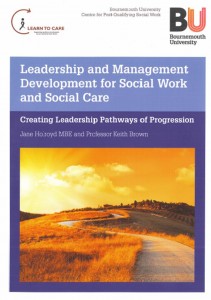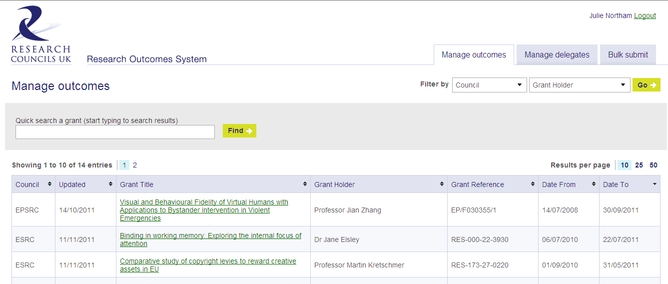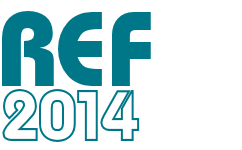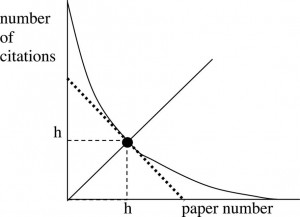 On Wednesday this week BU hosted a REF Team-supported event for universities in the south of England explaining the content of the recently released REF Panel Working Methods and Criteria documentation. This was the second REF event that has been hosted at BU in the past 12 months. The first event was held in May 2011 and you can read about it here: http://blogs.bournemouth.ac.uk/research/2011/05/25/the-excellent-hefce-ref-event-at-bu/
On Wednesday this week BU hosted a REF Team-supported event for universities in the south of England explaining the content of the recently released REF Panel Working Methods and Criteria documentation. This was the second REF event that has been hosted at BU in the past 12 months. The first event was held in May 2011 and you can read about it here: http://blogs.bournemouth.ac.uk/research/2011/05/25/the-excellent-hefce-ref-event-at-bu/
The event, attended by over 150 delegates from 32 institutions, outlined the similarities between how the four Main Panels will review submissions, as well as focusing on the differences between the panels particularly in how they will define and assess impact in the context of the REF.
Chris Taylor, Deputy REF Manager, spoke about the technical aspects of the REF, e.g. the timetable, element weightings, and institutional REF codes of practice, and then looked at each of the three elements of the REF in depth – impact, outputs and environment.
Prof Stephen Holgate, Chair of Main Panel A, then delivered a very interesting presentation on the similarities between the four Main Panels which have been vastly improved since the sector-wide consultation on the Panel Working Methods documentation last autumn. The Panels have put in a significant amount of work to ensuring their working methods will be as simple, transparent and similar as possible which is excellent news.
 After break there were four concurrent sessions, each focusing on one of the Main Panels. Event attendees could choose to attend one session. The session were led by:
After break there were four concurrent sessions, each focusing on one of the Main Panels. Event attendees could choose to attend one session. The session were led by:
- Main Panel A – Prof Stephen Holgate (Chair of Main Panel A)
- Main Panel B – Prof Philip Nelson (Chair of the General Engineering sub-panel)
- Main Panel C – Prof John Scott (Chair of the Sociology sub-panel)
- Main Panel D – Prof Bruce Brown (Chair of Main Panel D)
After the concurrent sessions, all presenters took part in a Q&A session back in Kimmeridge House.
One of the key messages of the day was that the sub-panels will not make use of journal impact factors, journal ranking lists, or other journal scoring information to inform the review of outputs. Citation data will be provided by the REF Team to sub-panels:
- Main Panel A: Sub-panels 1-6
- Main Panel B: Sub-panels 7-11
- Main Panel C: Sub-panel 18
Research collaboration (e.g. links with other institutions, business and industry, international collaboration, etc) was also highlighted at numerous points throughout the event as being of particular importance in the environment element of the assessment.
Regarding impact, Prof Holgate stressed that the assessment of impact was not necessarily linked to the size of the population affected but to the reach and significance of the impact – for example, a 4* impact case study could be for a drug that cured three people or 3 billion people.
 Also interesting was the focus on 4* research being that which is transformative research and that this could be the synthesis of knowledge and the identification of a new way of doing things. A review paper could therefore be assessed as 4* if it meets this definition. Prof Holgate remarked: “we are in an era of transformation. We want game changing outputs to be submitted to the REF”.
Also interesting was the focus on 4* research being that which is transformative research and that this could be the synthesis of knowledge and the identification of a new way of doing things. A review paper could therefore be assessed as 4* if it meets this definition. Prof Holgate remarked: “we are in an era of transformation. We want game changing outputs to be submitted to the REF”.
The event was closed by Prof Matthew Bennett at 1pm after which point event attendees networked over lunch. Feedback from attendees so far has been very positive!
If you attended the session then we’d love to know what you thought! Let us know by adding a comment to this post.
The slides will be available shortly via the Blog.




 This is a fantastic opportunity to have a say in improving the future commercialisation and application of research and influence policy, and fits in with the thought-leadership strand of
This is a fantastic opportunity to have a say in improving the future commercialisation and application of research and influence policy, and fits in with the thought-leadership strand of 

 Last month
Last month 

 BU will be hosting a half day Research Excellence Framework (REF) event, supported by the REF team, on 22 February 2012 to which all staff are invited to attend.
BU will be hosting a half day Research Excellence Framework (REF) event, supported by the REF team, on 22 February 2012 to which all staff are invited to attend.

 Bibliometrics pilot – HEFCE ran a pilot exercise in the construction of bibliometric indicators of research quality in 2008-09, using
Bibliometrics pilot – HEFCE ran a pilot exercise in the construction of bibliometric indicators of research quality in 2008-09, using  The REF will assess research excellence through a process of expert review, informed by indicators where appropriate. It will be based on HEIs submitting evidence of their research activity and outcomes, to be assessed by expert panels.
The REF will assess research excellence through a process of expert review, informed by indicators where appropriate. It will be based on HEIs submitting evidence of their research activity and outcomes, to be assessed by expert panels. What are bibliometrics?
What are bibliometrics? Web of ScienceSM is hosted by Thomson Reuters and consists of various databases containing information gathered from thousands of scholarly journals, books, book series, reports, conference proceedings, and more:
Web of ScienceSM is hosted by Thomson Reuters and consists of various databases containing information gathered from thousands of scholarly journals, books, book series, reports, conference proceedings, and more:

 Why do I need to think about the impact of my research?
Why do I need to think about the impact of my research?












 Beyond Academia: Exploring Career Options for Early Career Researchers – Online Workshop
Beyond Academia: Exploring Career Options for Early Career Researchers – Online Workshop UKCGE Recognised Research Supervision Programme: Deadline Approaching
UKCGE Recognised Research Supervision Programme: Deadline Approaching SPROUT: From Sustainable Research to Sustainable Research Lives
SPROUT: From Sustainable Research to Sustainable Research Lives BRIAN upgrade and new look
BRIAN upgrade and new look Seeing the fruits of your labour in Bangladesh
Seeing the fruits of your labour in Bangladesh ECR Funding Open Call: Research Culture & Community Grant – Apply now
ECR Funding Open Call: Research Culture & Community Grant – Apply now ECR Funding Open Call: Research Culture & Community Grant – Application Deadline Friday 12 December
ECR Funding Open Call: Research Culture & Community Grant – Application Deadline Friday 12 December MSCA Postdoctoral Fellowships 2025 Call
MSCA Postdoctoral Fellowships 2025 Call ERC Advanced Grant 2025 Webinar
ERC Advanced Grant 2025 Webinar Update on UKRO services
Update on UKRO services European research project exploring use of ‘virtual twins’ to better manage metabolic associated fatty liver disease
European research project exploring use of ‘virtual twins’ to better manage metabolic associated fatty liver disease